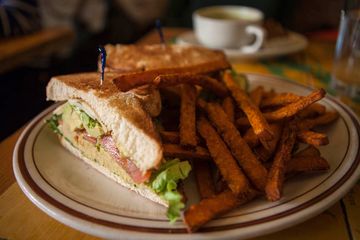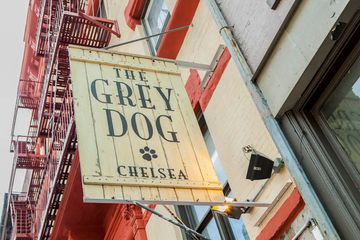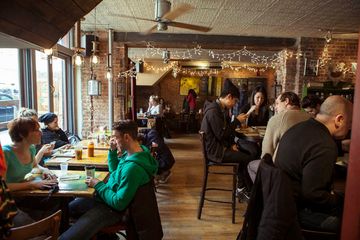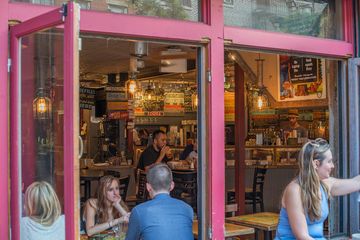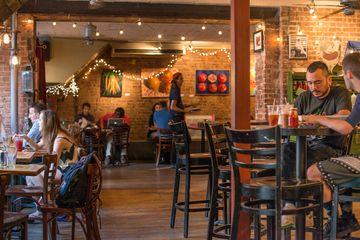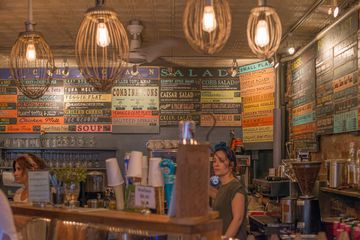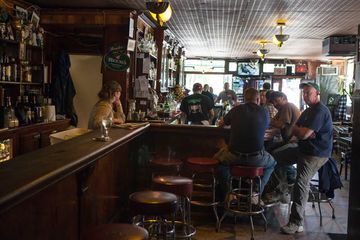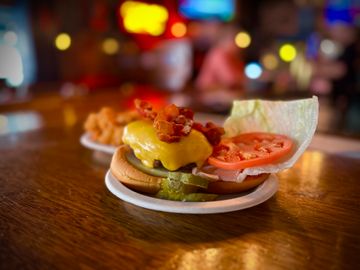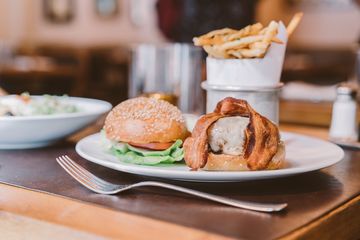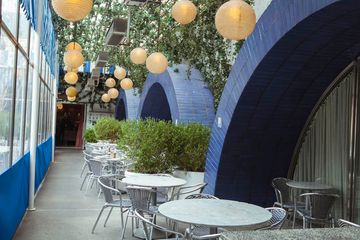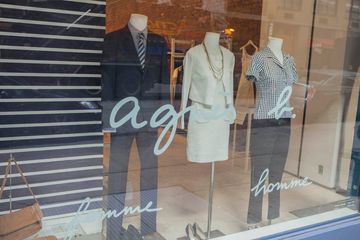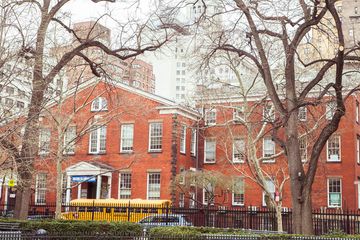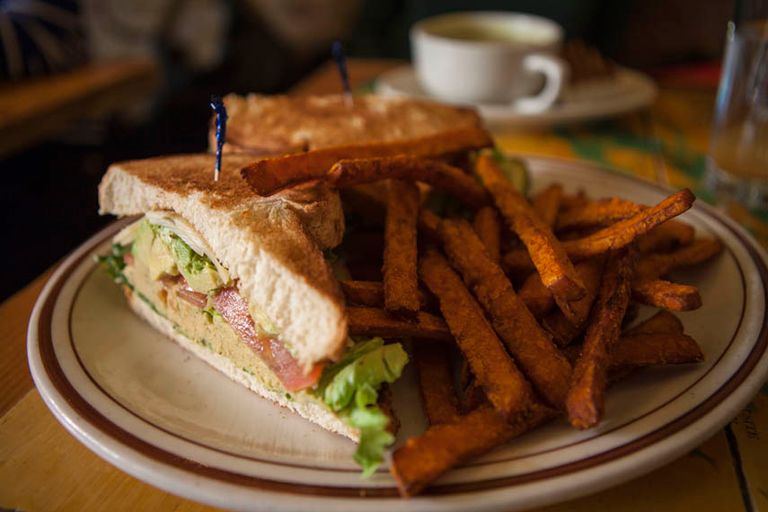
No matter what time of day we have stopped by Grey Dog, the restaurant is pulsing, but in a quiet, relaxed sort of way. Despite the lines to order food from the menu on the chalkboard and the crowded tables, everyone is calm and content. Apparently, this has been the vibe since two brothers opened their first restaurant back in 1996 on Carmine Street. Today they have expanded to four different locations, each one incredibly successful. The formula seems to be quite simple – a chill atmosphere, easy-going but efficient staff, a menu that covers all of the basics with a bit of a flair, hefty portions and, most importantly, everything tastes great. Beginning early in the morning, there are pancakes, French toast, eggs, homemade granola and coffee being served. As the day progresses, lots of sandwiches, salads and other creative dishes are available for lunch and dinner. Without a doubt, if I lived nearby, I would also become a regular.
